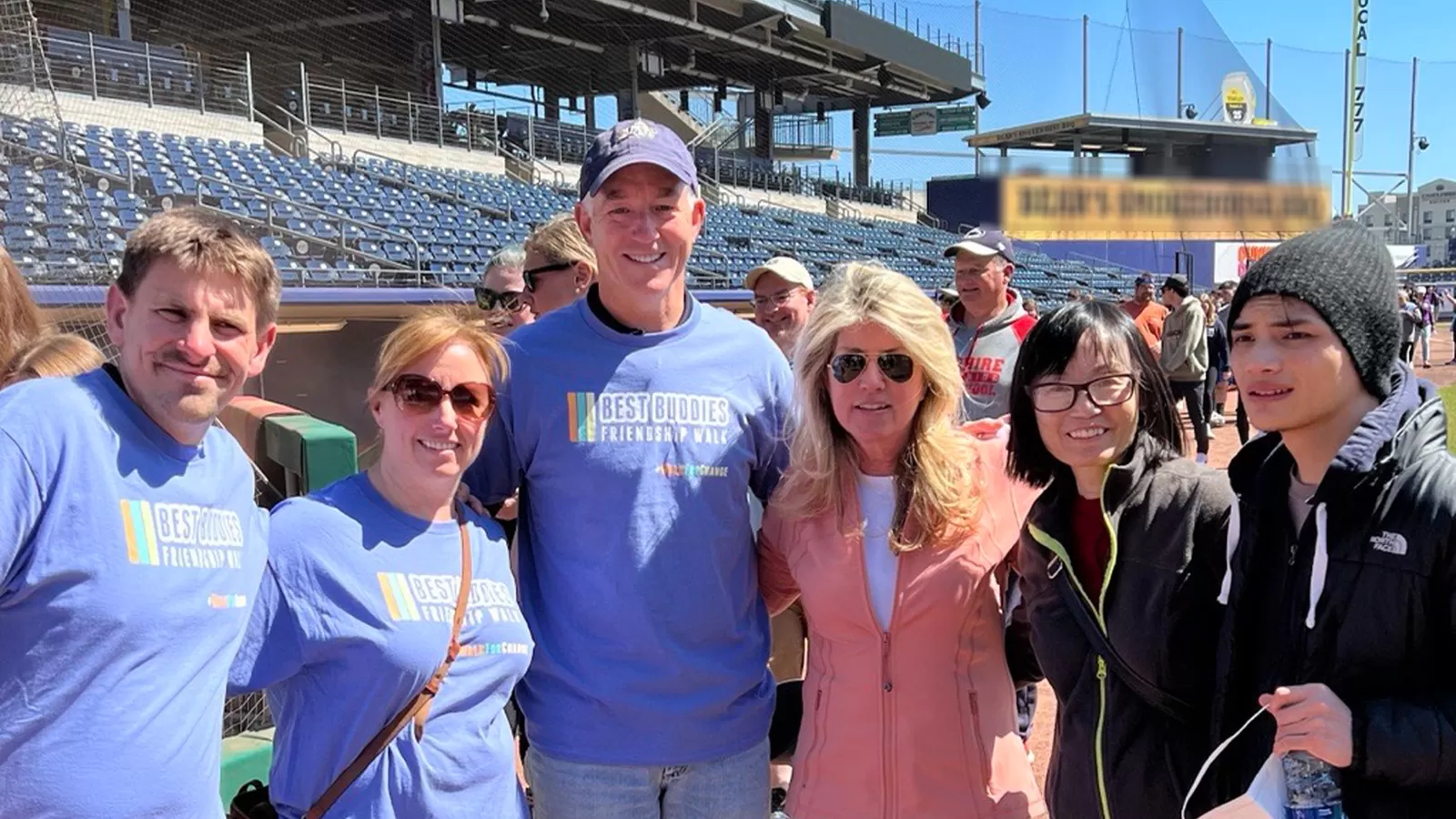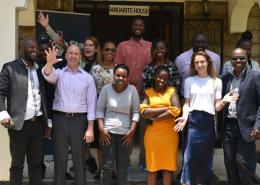Pfizer's Commitment to Disability Inclusion and Why It Matters at Work

When Rady Johnson contemplates the importance of diversity and inclusion in the workplace, he thinks of his son, Michael.
Michael, who is 31, has worked as an office assistant at a travel agency for about 10 years. In the summer, he also works on a maintenance crew at a beach. “He's just the hardest worker that you'll ever see,” says Rady, who is Pfizer's Chief Compliance, Quality & Risk Officer. Michael also lives with an intellectual disability.
Rady and his wife, Diane, adopted Michael from Romania in 1991. Born prematurely, he was very ill at the time. In the United States, he stabilized with medical treatment. As he grew older, it was clear that he struggled with learning. With immeasurable educational and community support, Rady and Diane's son flourished, while also making an impact on those around him. “Many people have told us, ‘No one works harder than Michael Johnson,’” says Rady. “They say, ‘If we all had the skills and attitude Michael has, we could all achieve some really great things.”
Rady's experience as a parent of a child living with an intellectual disability shifted his world view. With research, he learned that not all people are as lucky as Michael to have employment. In fact, in 2021, only 19.1% of people with a disability were employed, compared to 63.7% without a disability.1
At Pfizer, Rady saw an opportunity to make an impact. “People with disabilities are underemployed and underrepresented in workforces for lots of different reasons,” he says. “While Pfizer alone could never close that gap, we can do our fair share to take a dent out of it.”
In 2020, Pfizer devised a two-part strategy focused on supporting current employees with disabilities—either disclosed or undisclosed—and advancing disability employment through attracting, hiring, and retaining qualified workers with disabilities.
Codifying that commitment to colleagues, Pfizer established the disability Colleague Resource Group, which is one of the company's internal site-based groups offering support and development opportunities. Rady serves as Executive Sponsor.
And those hiring and training efforts have made progress around the globe. In Dublin, Ireland, Pfizer's Grange Castle site is partnering with an organization called WALK, which works to support people with disabilities and to hire interns, who are working in manufacturing, supply chain, and quality control roles.
Through hiring pilot programs at 10 sites in the U.S., Europe, and Asia-Pacific regions, 60 individuals with disabilities have begun work. Recruiting continues for more than 100 more open positions. Through a global summer worker program, Pfizer collaborated with partners to identify student candidates with disabilities in an effort to support their path toward future employment. In addition, Pfizer is taking steps to work with more suppliers whose businesses are disability-owned, and the company’s “Do Something” campaign encourages managers and leaders to share resources and hire individuals with disabilities. Within Pfizer, more than 400 colleagues have participated in training for neurodiversity awareness.
Rady believes that if Pfizer is intentional about these goals, both the employees and the employer will benefit. “It doesn't happen automatically,” he says. “That’s why there are inequities. We have to clear this path, and once we do, we’ve got a real talent source.”
The focus on equity and inclusion isn’t just the right thing to do. Studies show that the benefits of a diverse workforce ripple through the company, and the greater community. Researchers at Accenture analyzed 140 companies and found that about one-third of those companies (45) excelled in areas related to disability and inclusion.2 Those companies also achieved 30% higher economic profit margins over a four-year period and were twice as likely to outperform the others in shareholder returns. That same report cites other research that illustrates the benefits of inclusion, such as increased innovation, improved productivity, and access to diverse suppliers, among others.2
For a healthcare company like Pfizer, there’s another reason to prioritize diversity: “Everything we do is about patients and their families,” says Rady. “And we want to make sure our workforce reflects the patients and the families that we support.”
And, of course, for people like Rady, it’s personal. He’s seen the benefits, first hand, with Michael and his work. And, while he knows that every person is as different as their abilities, he believes that a job adds structure and meaning to life.
“Whether you have a disability or not, if you have a career, if you have a job, it doesn’t just fill time in your day,” he says. “It gives you a purpose.”
References:
- Persons with a Disability: Labor Force Characteristics Summary. Bureau of Labor Statistics. February 4, 2022. Available at https://www.bls.gov/news.release/disabl.nr0.htm. Accessed October 6, 2022.
- Getting to Equal: The Disability Inclusion Advantage. Accenture, in partnership with Disability: IN and The American Association of People with Disabilities. 2018. Available at https://www.accenture.com/_acnmedia/pdf-89/accenture-disability-inclusion-research-report.pdf. Accessed August 30, 2022.
![]()





